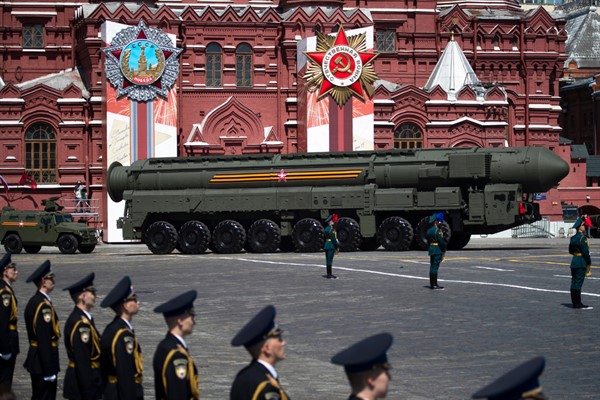One of President Joe Biden’s first actions after taking office in January was to agree with Russian President Vladimir Putin on extending the New Strategic Arms Reduction Treaty. Better known as New START, it is the last remaining nuclear arms control agreement between Washington and Moscow, verifiably limiting each country to no more than 1,550 deployed nuclear warheads and 700 deployed delivery systems.
The renewal of New START was widely welcomed by experts, given its important role in limiting the number of deployed nuclear weapons in the world. In a phone call this week, Biden and Putin discussed their intent to pursue further arms control talks, “building on the extension of the New START Treaty,” according to the White House’s readout. But it remains unclear how much further progress is possible, given the broader tensions in the U.S.-Russia relationship.
This week on Trend Lines, WPR’s Elliot Waldman is joined by Sarah Bidgood, the director of the Eurasia Nonproliferation Program at the James Martin Center for Nonproliferation Studies in Monterey, California. They discuss how the U.S. and Russia might be able to draw on the experiences of Cold War-era policymakers and negotiators to make progress on nuclear arms reduction, as well as Biden’s arms control and nonproliferation agenda more broadly. Click here to read a partial transcript of the interview.
Listen:
Download: MP3
Relevant Articles on WPR:
Can Biden Restore the Arms Control Treaties That Trump Tore Up?
The New Nuclear Weapons Ban Treaty Will Be an Early Trial for Biden
Russia’s New Nuclear Doctrine: Don’t Mess With Us—But Let’s Talk
Trump’s Withdrawal From the Open Skies Treaty Is Reckless and Self-Defeating
Trend Lines is edited by Peter Dörrie, a freelance journalist and analyst focusing on security and resource politics in Africa. You can follow him on Twitter at @peterdoerrie.
To send feedback or questions, email us at podcast@worldpoliticsreview.com.




